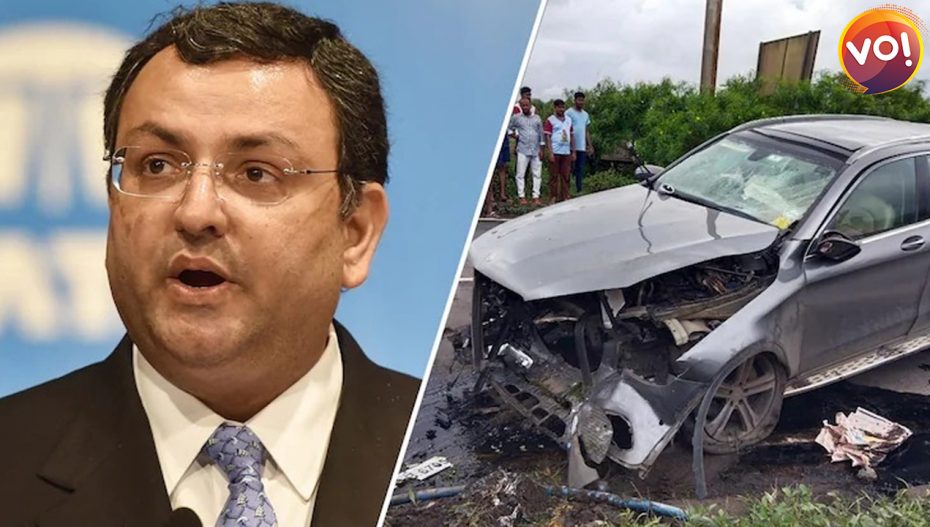Tata Son’s ex-chairman Cyrus Pallonji Mistry on Sunday, September 4, 2022 died in a car crash has again raised the vital signal over the significance of fastening of the seat belts while occupying the rear seat of a vehicle during the drive.
Mistry lost his life in a horrific car accident. The report suggested that he wasn’t wearing the seat belt while occupying the rare seat, substantiating a matter of carelessness.
According to the World Health Organisation, every year approximately 1.3 million people die as a result of road accidents with the top reason being over speeding, which increases the fatality rate by over 85 per cent for the occupants.
Speeding has become a major cause of concern regardless of the time of the day; and the construction of new and better highways has led to fast and risky manoeuvring by cars.
A strict provision under ‘The Central Motor Vehicle Rules’ has made the wearing of seat belts mandatory for a passenger sitting in the rear seat. As per the rule 138 (3), persons “seated in the front seat or the persons occupying front facing rear seats” must wear seat belts while the vehicle is in motion, otherwise violating the traffic rules could charge a penalty of INR 1,000.
Anand Mahindra, the renowned industrialist after hearing of Mistry’s tragic death, pledged to follow all the fundamentals of traffic rules. He said, “I pledge to wear my seat belt always even when I’m occupying the rear seat. We all owe it to our families.”
Actress and activist, Dia Mirza requested her followers on social media to go with the traffic norms.
In relation to the remuneration offered to the bereaved family and kin in case of accidental deaths, Dipak K Nag, a lawyer who deals with cases of motor accidents claimed, “There is no law, which says that if a person doesn’t wear a seat belt and is killed or injured in a road accident, he or she will not get compensation. In such cases, the tribunals or courts will go into the causes and may hold flouting of the seat belt rule, a contributing factor to the fatality or injury. The tribunals or courts may then be inclined to award a lower compensation.”
Meanwhile, Hari Ananthkrishnan, a retired chief general manager (legal) of IRDAI (Insurance Regulatory and Development Authority of India) said, “The court or tribunal will not only look into the cause of the accident but also the coverage of the insurance policy. The minimum cover mandated under the Motor Vehicles Act doesn’t cover ‘gratuitous passengers’ travelling in private vehicles, they are insured under a comprehensive policy. In such cases, the tribunal will look into all the aspects before awarding compensation, including adherence to provisions of the Central Motor Vehicles Rules, such as wearing of seat belts.”
A survey done by a community social media platform (LocalCircles) came out with the fact that 7 out of 10 passengers driving on the rear seat of a car by no means wear the security belt.
Whereas, 6 percent out of over 10,500 respondents shared that they wear the seat belts all the while occupying the rear, whereas 4 percent of the respondents acknowledged that by no means they wear belts in rear seats during the journey.
The survey acquired 10,598 responses from residents positioned in 274 districts of India. 61 percent respondents were from male category, whereas 39 percent respondents were from the opposite sex.
A total of 4,37,396 road accident cases were reported during 2019. Road accident cases in the country have decreased from 4,45,514 in 2018 to 4,37,396 in 2019. The fatalities in road accidents have increased by 1.3 percent (from 1,52,780 in 2018 to 1,54,732 in 2019).
A study has revealed that Delhi-NCR is the most accident-prone region in the country and Mumbai is not far behind. The ACKO Accident Index 2022, which was released today (30 August 2022), says the Delhi-NCR region is both the capital and the accident capital of India, with the highest number of accidents.
Nearly, 1214 road crashes occur every day in India. Two-wheelers account for 25 per cent of total road crash deaths. 20 children under the age of 14 die every day due to road crashes in the country. 377 people die every day, equivalent to a jumbo jet crashing every day.













